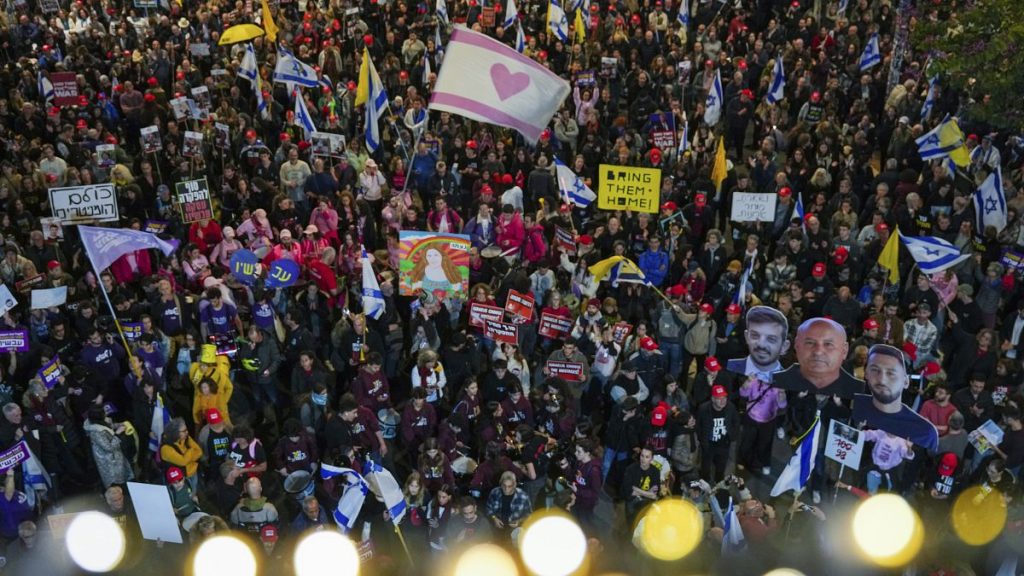The Impasse of Negotiations and the Plight of Hostages in the Gaza War
The protracted war between Israel and Hamas has reached a critical juncture, with the fate of hostages held by Hamas in Gaza hanging in the balance. A glimmer of hope emerged as Israeli Prime Minister Benjamin Netanyahu dispatched the director of the Mossad foreign intelligence agency, David Barnea, to participate in ceasefire talks in Doha, Qatar. This move, indicating high-level Israeli involvement, signifies a potential breakthrough after 15 months of devastating conflict. The timing of the talks is also crucial, with increasing pressure from the United States to reach a deal before the upcoming presidential transition.
The backdrop to these negotiations is a scene of ongoing protests and mounting public frustration. Weekly rallies in Tel Aviv, now known as "Hostages Square," have become a focal point for families and supporters demanding the return of their loved ones. Several international ambassadors have joined these protests, expressing solidarity and urging all parties to expedite the negotiation process. The rallies have also taken on a political dimension, with protesters calling for Netanyahu’s resignation and fresh elections, accusing him of prioritizing political survival over the lives of the hostages. The public outcry underscores the emotional toll of the conflict and the deep divisions within Israeli society.
The details of the ceasefire negotiations, mediated by the United States, Egypt, and Qatar, remain closely guarded. Reports suggest that the framework of a deal is largely agreed upon, but significant sticking points remain. A phased approach has been proposed, involving a partial hostage release in exchange for a temporary ceasefire. However, fundamental disagreements persist regarding Hamas’s demand for a full Israeli troop withdrawal from Gaza and Israel’s insistence on dismantling Hamas’s military capabilities. These conflicting objectives present a formidable challenge to reaching a sustainable agreement.
The human cost of the war continues to escalate, with devastating consequences for the Palestinian population in Gaza. The Gaza Health Ministry reports over 46,000 Palestinian deaths, a majority of whom are women and children, while the Israeli military claims to have killed over 17,000 militants. These staggering figures highlight the immense suffering and loss of life on both sides of the conflict. The war, which began in October 2023 with a Hamas incursion into southern Israel, resulted in the deaths of 1,200 Israelis and the capture of approximately 250 hostages. While a truce in November 2023 led to the release of over 100 hostages, and others have been rescued or their remains recovered, the fate of the remaining hostages remains a central concern.
The complexity of the negotiations reflects the deep-seated mistrust between Israel and Hamas. Israel views Hamas as a terrorist organization and is determined to prevent its resurgence. Hamas, on the other hand, seeks to lift the blockade on Gaza and establish an independent Palestinian state. Bridging these seemingly irreconcilable positions requires a delicate balancing act and significant concessions from both sides.
As the negotiations unfold, the international community anxiously awaits the outcome. The success or failure of these talks will have profound implications not only for the hostages and their families but also for the broader region. A sustainable ceasefire agreement is essential to prevent further bloodshed and pave the way for a lasting resolution to the conflict. The pressure mounts on both sides to demonstrate the necessary political will and make the difficult compromises needed to achieve this crucial objective.














